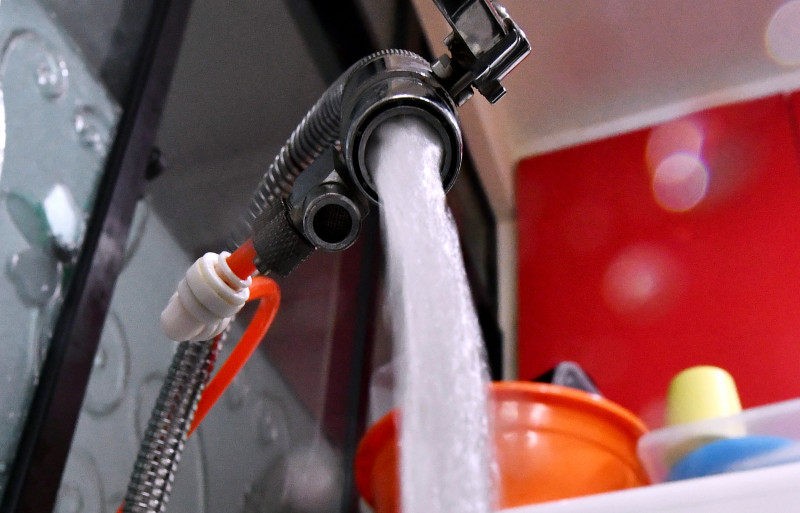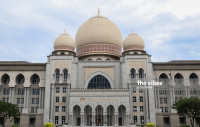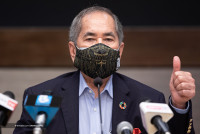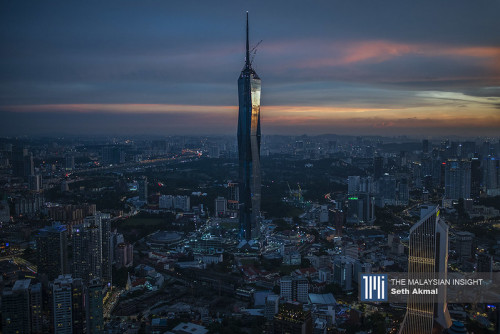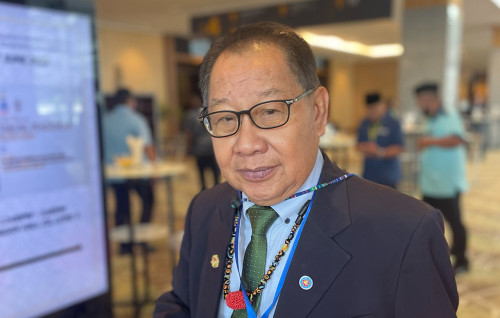
THE recent water supply disruption that saw 1.4 million Klang Valley consumers suffering dry taps for up to five days following river pollution emphasises the need to take water security seriously.
A workshop servicing heavy machinery in Rawang allegedly discharged industrial oil into Sg Gong on September 3. Four water treatment plants were forced to close as a result, increasing the vulnerability of a population already grappling with the Covid-19 pandemic.
For the first time since the Klang Valley has had to deal with such incidents – and there have been many – five people, including four brothers who are directors of the company that owned the workshop, were arrested and charged.
What took so long for the authorities to finally realise that it was inadequate, even insulting, to Malaysians to impose paltry compounds on river polluters?
The credibility of both the federal and state governments is at stake over their inability to protect water resources.
The Selangor menteri besar’s decision to use forfeiture under the National Land Code (NLC) and demolish the workshop and other illegal factories under the Town and Country Planning Act 1976 and/or the Street, Drainage and Building Act 1974 is to be applauded. This is the most potent remedy yet used by an administration, whether state or federal, in the fight against water pollution, and can also be effective against air pollution and other threats to health posed by open burning and abandoned buildings.
To enhance the effectiveness of forfeitures, the state government may need to request that the National Land Council amend the NLC to cover situations where an illegal factory is intentionally, and directly or indirectly, polluting the state’s water supply with substances that endanger public health and safety, and where the land title allows the plot in question to be used for industrial purposes.
The recent recognition by both sides of the political divide that water pollution is a threat to national security more than justifies changes to the code. Presently, under Sections 127 and 128, forfeiture is enforceable against polluters operating on land designated for agricultural and other uses except for industrial.
Demolition can be ordered against a polluting factory whether it operates on land zoned for industrial use or otherwise, and if it was constructed without planning or building approval, or lacks a licence from local authorities.
This appears to be the case in the latest incident.
Who’s responsible?
Which authority is ultimately responsible for the protection of rivers that are a source of public water supply is a question that has often been asked in the media, and there have been attempts to politicise the issue.
It shouldn’t be forgotten that the primary piece of legislation granting executive authority for the management and protection of water supply is the Water Services Industry Act 2006 (Wasia), passed under Clause 1 of Article 74 and Clause 2 of Article 80 of the federal constitution.
This means that it’s a federal enactment passed with the consent of state governments. The act vests executive authority specifically in the federal government on matters relating to water supply services and systems.
In other words, the National Water Services Commission (Span) is, for all practical purposes, the executive authority.
Section 121 of Wasia provides the highest penalty of any law on the serious pollution of water supply. Read together with provisions of the Penal Code and Criminal Procedure Code, it allows for the immediate arrest of the individuals involved.
Section 277 of the Penal Code makes it an offence to corrupt or foul a water source, or render the water source unfit for use, and provides for a jail term of three months, or a RM1,000 fine, or both.
Wasia accords substantial powers to Span to investigate, enter and search premises to carry out its functions in relation to the act. Thus, the federal government is the primary authority responsible.
For example, if I were to tamper with the pipe outside my house so that supply bypassed the water meter, I would be prosecuted by a federal, not state, authority.
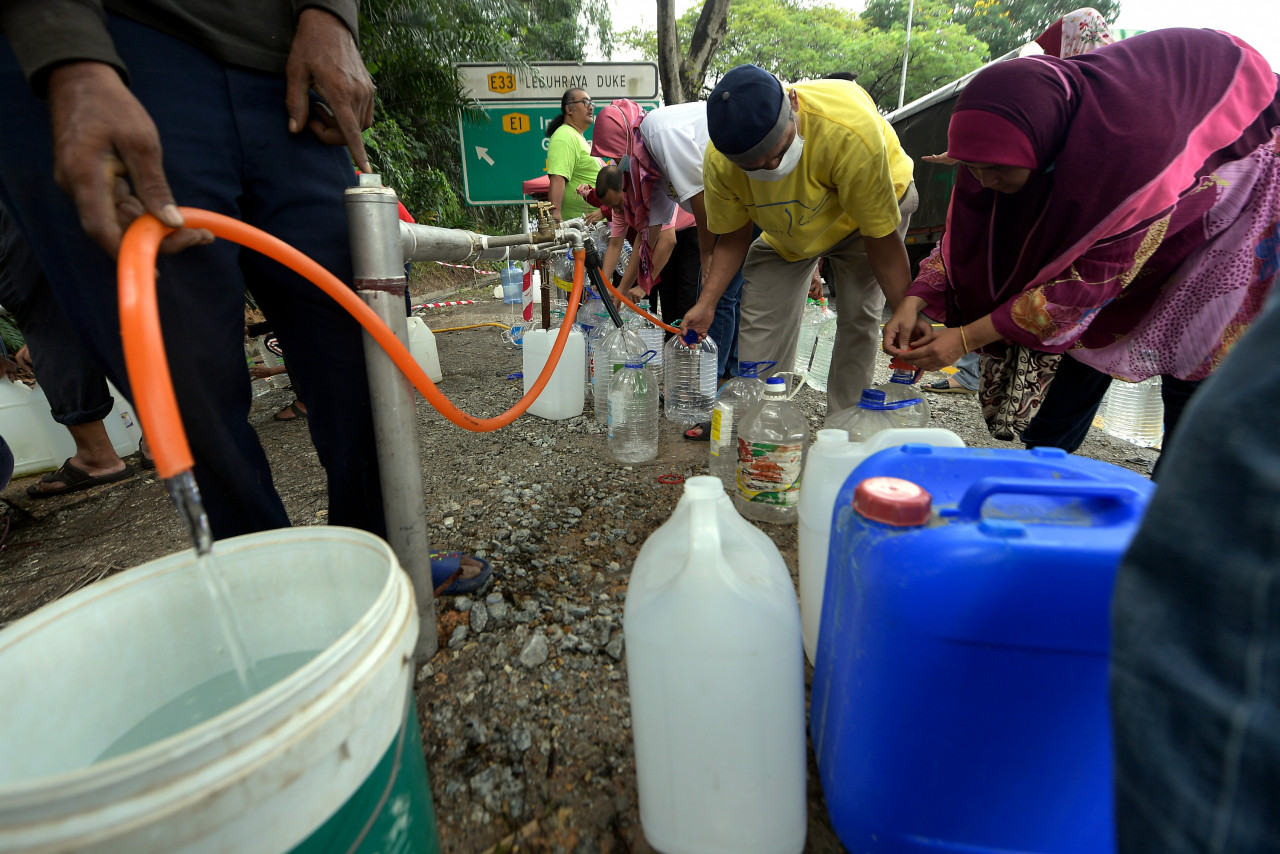
Similarly, the Environmental Quality Act 1974 is a federal law that places in Putrajaya the power to prevent and control pollution, and enhance environmental protection. Given this, it’s unfair to push the responsibility of protecting public water supply solely to the state.
Federal authorities must ensure a sufficiently large budget, along with resources and manpower, to monitor pollution risks and carry out enforcement.
When any law is passed, it must be ensured that there are enough funds to execute the related responsibilities. This is a basic tenet of passing legislation. However, it doesn’t free state governments completely of the responsibility of protecting water supply.
The Selangor Water Management Authority (Luas) is empowered to license and control emissions into raw water sources, and the Local Government Act 1976 gives local authorities the power to prevent illegal factories, buildings and businesses from operating, as well as curb river pollution.
There’s no doubt that combating water pollution is a joint obligation and must be treated as such, but that being said, the primary responsibility remains with Putrajaya. In fact, Environment and Water Minister Datuk Seri Tuan Ibrahim Tuan Man has correctly and commendably stated that action will be taken against polluters under Wasia and the Environmental Quality Act.
State governments can, nevertheless, step up enforcement against polluters, illegal structures and factories, and zoning and licensing violators under the Luas enactment, Local Government Act, Town and Country Planning Act, and Street, Building and Drainage Act.
The Local Government Act allows local authorities to take action against parties that pollute streams and rivers, including demanding that they clean up the affected sites and bear the cost of doing so. Offenders are also liable to pay the full cost of rectifying the situation.
This law provides for a fine of RM5,000, or imprisonment of up to two years, or both. When the penalty is a jail term and/or fine, the government must request a custodial sentence for repeat offenders because of the serious harm caused to the public.
The same act and various by-laws allow local authorities to not only seal a building, but seize all the items inside that contributed to producing the pollutant. They can also shutter the business permanently by refusing to issue a licence.
The authorities are allowed to demolish the building in question in the event that the nuisance caused cannot be abated and it remains a threat to public health. They should make known, too, the full names of the people and companies guilty of pollution.
Section 430 of the Penal Code, meanwhile, is used to charge those who intentionally cause water pollution. If convicted, they face between five and 30 years behind bars, or a fine, or both.
The following are three major measures that must be taken to deter the pollution of public water supply:
1. The federal government must provide consumers whose water supply is disrupted by intentional pollution a legal right to claim damages.
The law should state a minimum rate for each day of disruption payable by the polluter, and not the water service provider. A minimum compensation of RM1,000 per day to each consumer will enable the civil justice system to act as a huge deterrent to intentional polluters, who could face thousands of suits and stand to lose everything they have.
This amendment will likely require the addition of only several lines of text to Section 121 of Wasia. The environment minister can easily move to do this.
2. State governments can conduct rezoning or implement use classes for areas critical to the preservation of water security, with certain activities that pose a high risk prohibited. This will involve use-class orders in a local plan under the Town and Country Planning Act.
The list of banned activities should be determined by consensus among all federal, state and local government agencies tasked with protecting water security.
3. State governments, through the National Land Council, can seek an amendment to allow the forfeiture of land used in violation of local planning and zoning rules for an activity that threatens public health and safety.
Alternatively, this can be done by adding to the express or implied conditions under the NLC. — The Vibes, September 21, 2020
Derek Fernandez is a planning and local government law expert.



